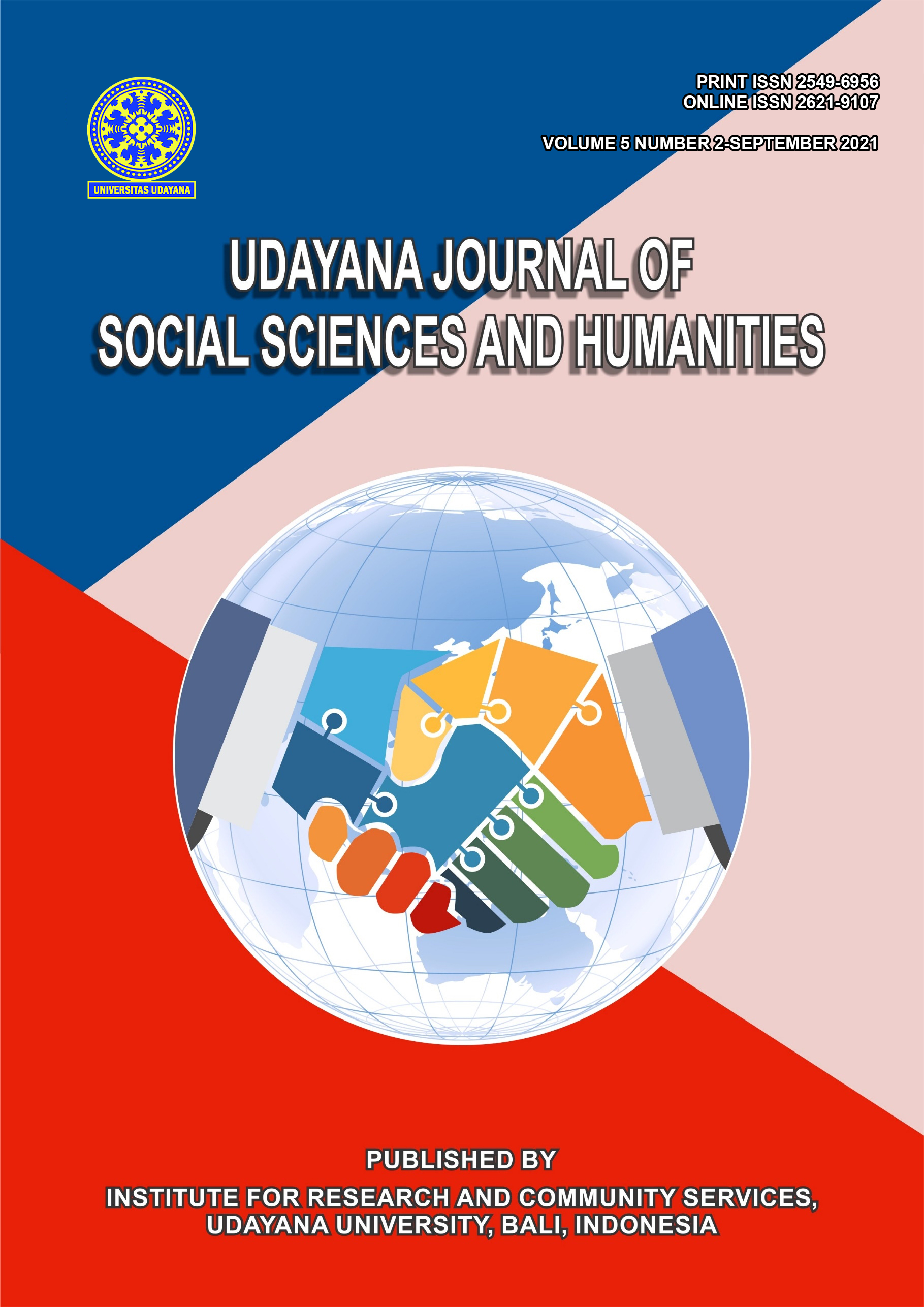Women Linguistic Features in the Craig Gillespie’s Movie “I, Tonya”
Abstract
Lakoff's assertion about women's language was a breakthrough in linguistics. However, many linguists and researchers also criticized and stated different perspectives towards Lakoff's theory. Therefore, this study was conducted in order to know whether Lakoff's theory is still relevant nowadays. This study used the movie “I’ Tonya” as the data source. It was applied with quantitative and qualitative analysis. It is a documentation method supported with a corpus analysis based on the concordance technique using AntConc software. The findings show that nine types of women's linguistics features were used by the female characters in the “I’ Tonya” movie. Meanwhile, one type of women linguistics feature of the precise color term was not found. From 10677 words of corpus data from “I’ Tonya” subtitles script, women used lexical hedges accounting for 64% while men only 36%. It was also found in intensifier where women used accounting for 103 expressions and men only 37 expressions. However, in avoidance of strong swear words, women were using swear words about 71% compared to only 28% used by men.
Downloads
References
[2] Asih Yuliananingrum, Suparno and Sujoko (2015) 'The Analysis on Male and Female Talk in Oprah Winfrey Show (Sociolinguistic Approach).’, English Education. DOI: 4. 37. 10.20961/eed.v4i1.34714.
[3] Cameron, D. (2005) ‘Language, Gender, and Sexuality: Current Issues and New Directions’, Applied Linguistics, 26(4), pp. 482–502. DOI: 10.1093/applin/ami027.
[4] Carli, L. L. (1990) ‘Gender, language, and influence.’, Journal of Personality and Social Psychology, 59(5), pp. 941–951. DOI: 10.1037/0022-3514.59.5.941.
[5] Coates, J. (2015) Women, men, and language: A sociolinguistic account of gender differences in language. Routledge.
[6] Crawford, M. (1995) Talking difference: on gender and language. London; Thousand Oaks, Calif.: SAGE. Available at: http://site.ebrary.com/id/10567083 (Accessed: 7 January 2021).
[7] Creswell, J. W., and Creswell, J. D. (2018) Research design: qualitative, quantitative, and mixed methods approach. Fifth edition. Los Angeles: SAGE.
[8] Eckert, P. and McConnell-Ginet, S. (2013) Language and gender. Cambridge: Cambridge University Press. Available at: https://doi.org/10.1017/CBO9781139245883 (Accessed: 8 November 2020).
[9] Edwards, J. (2009) Language and identity: an introduction. Cambridge, UK ; New York: Cambridge University Press (Key topics in sociolinguistics).
[10] Hall, K., and Bucholtz, M. (1995) Gender articulated: language and the socially constructed self. New York: Routledge. Available at: http://gateway.library.qut.edu.au/login?url=https://www.taylorfrancis.com/books/9781136045424 (Accessed: 19 January 2021).
[11] Holmes, J. (2008) An introduction to sociolinguistics. 3rd ed. Harlow, England ; New York: Pearson Longman (Learning about language).
[12] Kurniaty, N. (2018) ‘Women’s Language in the Movie Script of The Perks of being a Wallflower’, Humanis, 22(2), pp. 542–548. DOI: 10.24843/JH.2018.v22.i02.p37.
[13] Lakoff (2004) Language and woman’s place: Text and commentaries. Oxford University Press, USA.
[14] Sanjaya, I. B. G. D. (2018) ‘Women’s Language in “The Nanny Diaries” Movie’, Humanis, 22(3), pp. 804–809. DOI: 10.24843/JH.2018.v22.i03.p35.
[15] Satria Wirasa, K., Winaya, I. M. and Alit Ida Setianingsih, N. K. (2018) 'Women's Language Used in the Video of Counter-Strike: Global Offensive Female Player', Humanis, p. 1039. DOI: 10.24843/JH.2018.v22.i04.p28.
[16] Soffie Jakobsson (2010) ‘A Study of Female Language Feature in Same-Sex Conversation’, Hogskolan I Gavle.
[17] Svendsen, A. D. (2019) ‘Lakoff and Women’s Language’, Leviathan: Interdisciplinary Journal in English, (4), pp. 1–11. DOI: 10.7146/lev.v0i4.112651.
[18] Wardhaugh, R. (2006) An introduction to sociolinguistics. 5th ed. Malden, Mass., USA: Blackwell Pub (Blackwell textbooks in linguistics, 4).






